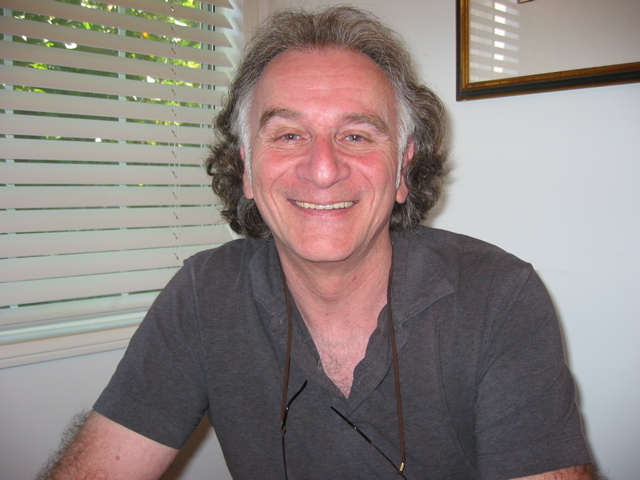
2005-10-13 Simon Levy—Profile
Theatre Profile
Simon Says:
Get out of Iraq
jewishsightseeing.com, October 13, 2005
plays file
 |
2005-10-13 Simon Levy—Profile |
|||
|
|
||||
|
|
Get out of Iraq
|
|||
|
Simon Levy signs his emails
with “Peace and Passion. And that’s about as fitting an epithet for the
man and his values as one could find Levy, who is a playwright/director/producer/actor, is currently Producing Director/Dramaturg for the Fountain Theatre, which, as I’ve said many times, is just about the best little theater in Los Angeles. (And what is a dramaturg, you might ask. In a nutshell, he’s the one who adapts a play for production and sees to it that the playwright’s vision is adhered to.) Levy’s current offering at the Fountain is What I Heard About Iraq, a political drama he adapted from an article by Eliot Weinberger. With humor and horror, and with their own words, Levy chronicles the Bush administration’s run-up to and handling of the current war. It’s a tale of negligent indifference, cynicism, and of “catastrophic success,” as the president puts it. It’s also a stirring demonstration of Levy’s own passion. “What informs my work?” Levy asks rhetorically. A determination to “understand ‘the other’,” he says. “To challenge myself with something that ‘can’t be done’. It’s the 15-year-old rebel in me. “I have no desire to walk in the meadow,” he continues. “I walk along the cliff edge; I test limits. And as a director, I will be there to catch you if you fall.”  Simon Levy, 2005—Photo by Cynthia Citron Levy began life in Surrey, England, but came to America with his mother at the age of two. He credits her Orthodox Judaism for Instilling in him the values he has habitually demonstrated in his creative work. "I have been greatly influenced by my Jewish heritage," he says. He grew up in San Francisco, attending City College and San Francisco State as a music major. As a jazz musician on the alto sax, he played on the streets of the city and with a rock band. But he had to walk through the lobby of the college’s theater to get to the music department, and he got “captured”. Changing his direction, he acquired his bachelor’s and master’s degrees in theater at State, with an emphasis on directing. He also pursued anthropology, specializing in indigenous cultures, and became what he calls an “anthro-dramatist.” As an actor for 10 years, he toured with San Francisco Shakes, a local Shakespeare company, and spent seven years with the celebrated Beach Blanket Babylon company, which he considers “a baptismal into every aspect of theater, from selling tickets to serving as general manager. It gave me a grounding in understanding what it takes to make theater happen,” he says. “Next to stand-up comics, actors are the bravest creatures on the planet,” he says. As an actor, you have to “effect change to people sitting in the audience and convince them that you really are whatever it is you’re pretending to be.” Somewhere
around this time he began writing screenplays for B movies. “They run
now on the USA Channel late at night,” he says. He also wrote
screenplays using a pseudonym. “Are you going to tell us the name you
used?” I asked. “Certainly not!” he answered with a laugh. |